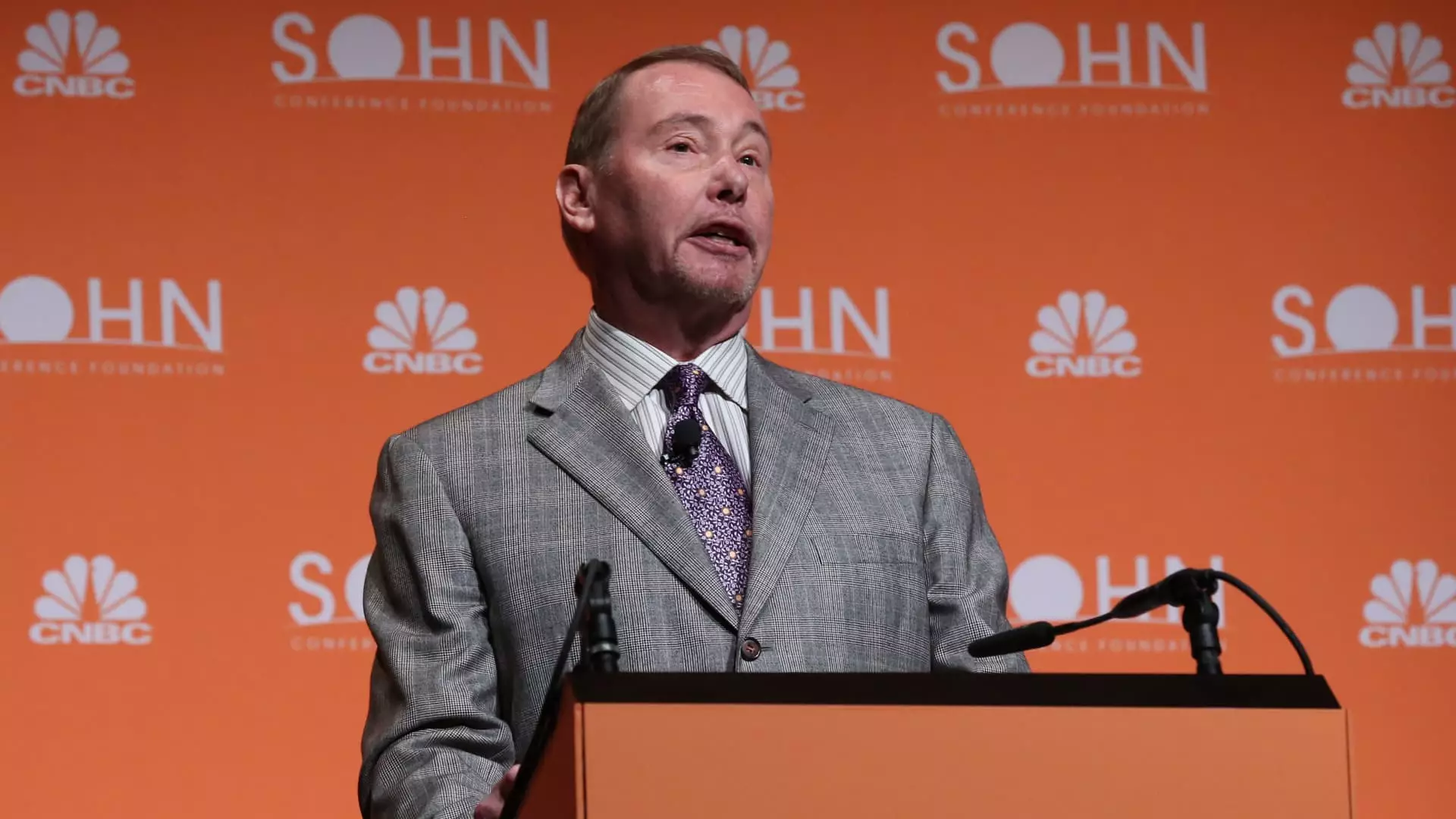In the ever-evolving fiscal landscape of the United States, interest rates have become a focal point of discussion, particularly in light of political outcomes. As financial markets react to governmental changes, the implications of controlling the House of Representatives are significant. If the Republicans secure the House, as suggested by industry experts like Jeffrey Gundlach, CEO of DoubleLine Capital, we could witness a sharp increase in interest rates. Gundlach anticipates that an uptick in government spending, driven by a Republican-led House working in concert with a Republican president, would necessitate increased borrowing, thus exerting upward pressure on bond yields.
Government spending and borrowing are intrinsically linked, especially when engaging in expansive fiscal policies. Gundlach points out that heightened borrowing through Treasury issuances could arise from increased expenditures. This dynamic becomes crucial as the U.S. grapples with a staggering national debt exceeding $36 trillion and a looming budget deficit projected to surpass $1.8 trillion for fiscal year 2024. The interplay between fiscal policies and interest rates reveals a complex web where decisions by the political elite can significantly impact economic realities.
As financial analysts and investors digest potential political outcomes, the Federal Reserve’s response becomes a central theme. Following a recent interest rate cut, traders anticipate further reductions, yet the specter of rising rates in the backdrop is palpable. Gundlach’s assessment that long-term rates may rise amidst increased government borrowing reflects broader concerns regarding the sustainability of fiscal paths taken by the government. The Federal Reserve’s willingness to adapt to such changes remains an area of intense scrutiny as it may have to navigate the delicate balance of stimulating the economy while controlling inflation through interest rates.
Consequences of Tax Policies on Fiscal Health
The potential tenure of a Trump-led administration raises additional questions regarding tax policies. If existing tax cuts from 2017 are extended or new reductions introduced, it could inject additional debt into an already fragile economic framework. The allure of cyclical stimulus as proposed by Trump could momentarily invigorate economic activities but may ultimately exacerbate fiscal constraints. Gundlach cautions that while such policies could mitigate recession risks in the short term, they also have the propensity to deepen long-term fiscal challenges.
Despite the complexities on the horizon, Gundlach’s commentary suggests an intriguing paradox. While the likelihood of recession might decrease in the face of Trump’s stimulus measures, the underlying economic stability hinges on sound fiscal management. In essence, the balance between governmental spending, borrowing, and effective taxation will dictate not only the trajectory of interest rates but also the overall health of the U.S. economy. As political dynamics continue to unfold, stakeholders must remain vigilant, understanding that the consequences of these decisions reverberate beyond immediate financial markets, shaping the economic landscape for years to come.

